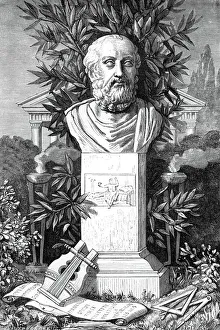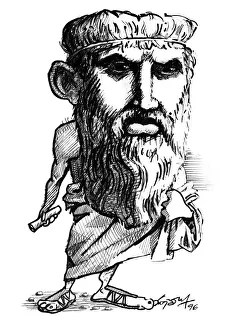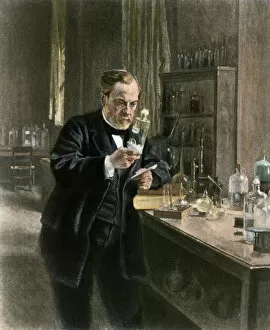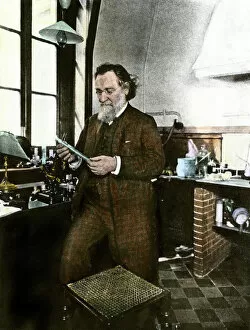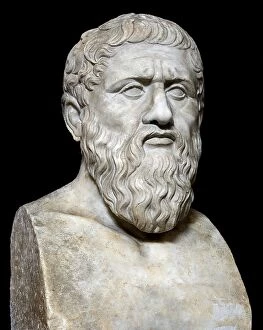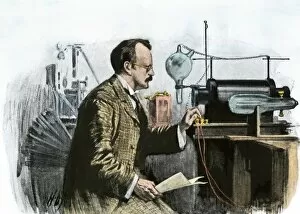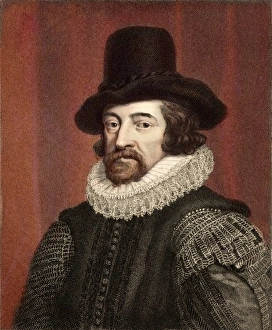Scientific Method Collection
"Unveiling the Secrets of Science: Tracing the Roots of the Scientific Method" In ancient Greece, Plato, a renowned philosopher
All Professionally Made to Order for Quick Shipping
"Unveiling the Secrets of Science: Tracing the Roots of the Scientific Method" In ancient Greece, Plato, a renowned philosopher, laid the foundation for critical thinking and logical reasoning. His teachings emphasized questioning assumptions and seeking truth through systematic inquiry. (PSCI2A-00015) Plato's caricature reflects his profound influence on shaping scientific methodology even to this day. His ideas continue to inspire generations of scientists in their pursuit of knowledge and understanding. (PSCI2A-00043) Fast forward to 1731 when Francis Bacon's oil painting captured his vision for an organized approach to scientific investigation. Bacon advocated for empirical observation, experimentation, and induction as essential elements in discovering universal truths about nature. (Francis Bacon, 1731 - oil on canvas) Building upon Plato's legacy, modern science has embraced a structured process known as the scientific method. This method involves formulating hypotheses based on observations or existing theories and subjecting them to rigorous testing through experiments or data analysis. (PSCI2A-00047) The scientific method serves as a compass guiding researchers towards reliable conclusions by minimizing bias and errors that may arise from subjective interpretations or hasty generalizations. (PSCI2A-00001) (PSCI2A-00014) Just like Sherlock Holmes and Dr. Watson unraveled mysteries using deductive reasoning, scientists employ similar techniques within the framework of the scientific method to investigate natural phenomena systematically. (Sherlock Holmes and Dr. Watson) Through repeated cycles of observation, experimentation, analysis, and revision; scientists refine their understanding while building upon previous knowledge. (PSCI2A-00047) (Plato) (Plato) (Plato - Ancient Greek philosopher) Ultimately, it is this robust methodology that has propelled humanity's progress in fields ranging from medicine to space exploration – unlocking new frontiers while challenging our preconceived notions.

